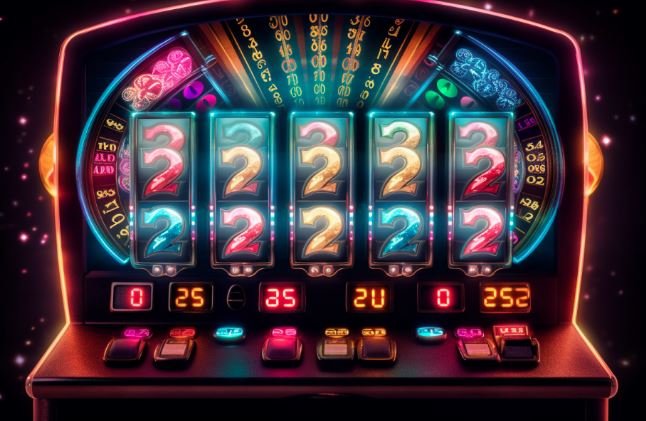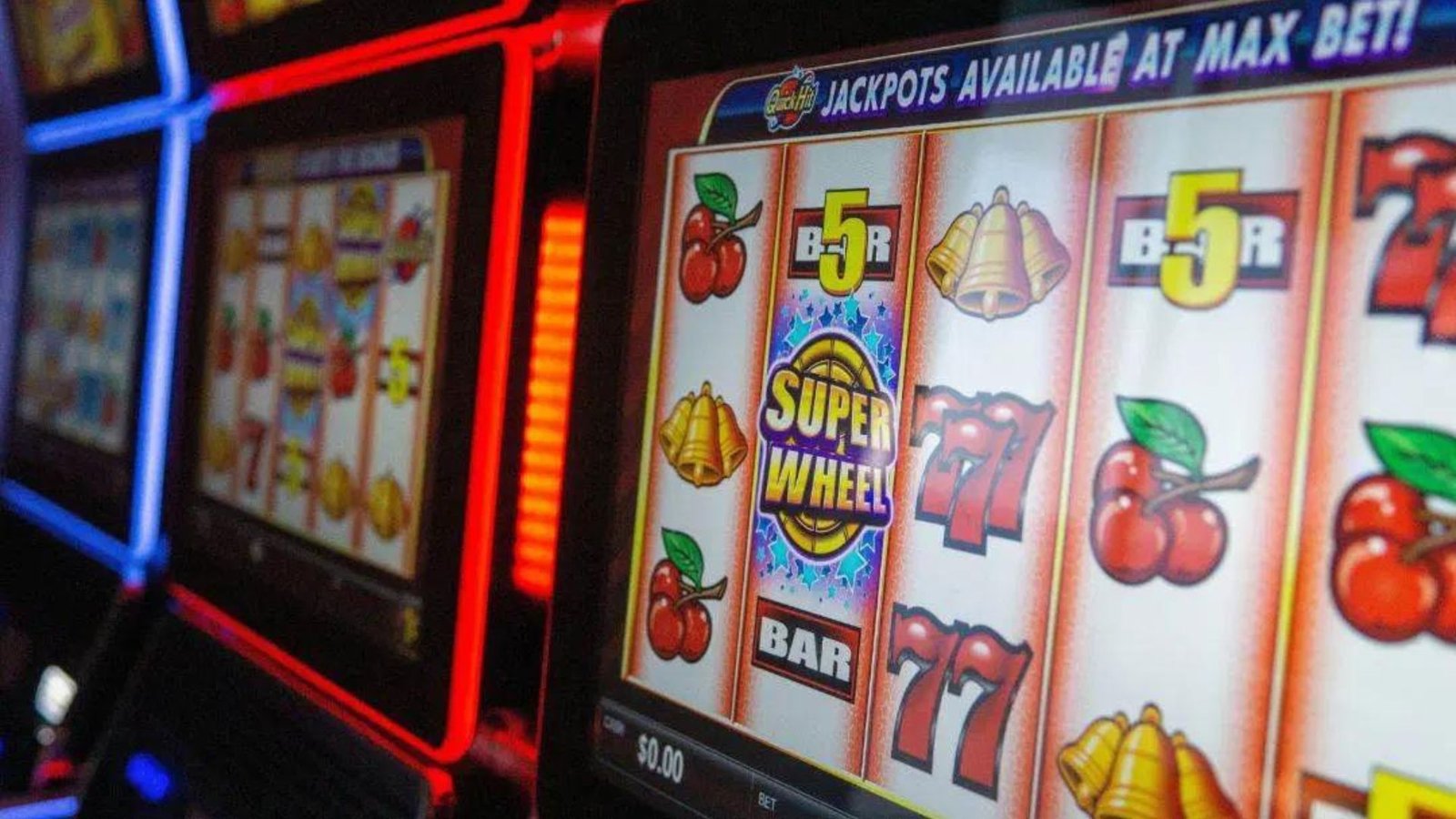Slot games are a popular form of entertainment that have evolved significantly with the advent of online casinos. One of the factors contributing to their appeal is the use of rewards, such as bonus rounds, free spins, and other incentives. In this post, we will explore the psychology behind slot game rewards and how they impact player engagement.
- The Role of Rewards in Motivation:
Rewards are known to be powerful motivators, and slot game rewards are no exception. We discuss how these rewards activate the brain’s reward system, triggering feelings of pleasure and reinforcing the behavior of playing slot games. The anticipation and acquisition of rewards can increase excitement, motivation, and engagement.
- Dopamine and Reward Sensitivity:
Dopamine, a neurotransmitter associated with pleasure and motivation, plays a significant role in slot game engagement. We explore how slot game rewards stimulate dopamine release, creating a sense of pleasure and positive reinforcement. Some individuals may have higher reward sensitivity, making them more susceptible to the allure of slot game rewards.
- Variable Rewards and the Element of Surprise:
Slot games employ a technique known as “variable rewards,” where the timing and magnitude of rewards are unpredictable. We examine how this variability taps into the brain’s anticipation system, creating excitement and keeping players engaged. The element of surprise associated with rewards can enhance the overall gaming experience.
- Illusion of Control:
Slot games often incorporate features that give players a sense of control over outcomes, such as selecting paylines or pressing buttons. We discuss how this illusion of control can heighten engagement and make the rewards feel more earned, even though outcomes are determined by random number generators.
- The Impact of Near Misses:
Near misses, when symbols on the reels are almost aligned for a win, are another psychological aspect of slot games. We explore how these near misses can increase player arousal, enhancing the desire to continue playing in hopes of achieving a win. The frustration caused by near misses can paradoxically fuel further engagement.
- Responsible Gambling and Player Protection:
While rewards can enhance player engagement, it is important to address the potential risks associated with excessive or problematic gambling behavior. We highlight the need for responsible gambling measures, such as self-exclusion options, limit-setting tools, and player education, to ensure player protection and mitigate the potential negative impact of slot game rewards.
- Designing Ethical Reward Systems:
Game developers have a responsibility to design ethical reward systems that prioritize player well-being. We discuss the importance of transparent and responsible reward mechanisms, avoiding manipulative tactics and fostering informed decision-making.
Conclusion:
Slot game rewards have a profound impact on player engagement, utilizing psychological principles to create excitement, motivation, and pleasure. Understanding the psychology behind these rewards is crucial for both players and game developers to promote responsible gambling practices and ensure that the gaming experience remains enjoyable and safe. Striking a balance between player engagement and responsible game design can lead to a more sustainable and fulfilling gaming experience for all.












I am continuously browsing online for articles that can benefit me. Thx!
Hey there! I know this is somewhat off topic but I was wondering which blog platform are you using for this website? I’m getting tired of WordPress because I’ve had problems with hackers and I’m looking at options for another platform. I would be great if you could point me in the direction of a good platform.
I have not checked in here for some time because I thought it was getting boring, but the last several posts are great quality so I guess I’ll add you back to my everyday bloglist. You deserve it my friend 🙂
You have brought up a very good points, thankyou for the post.
Thanks for every other excellent article. The place else could anybody get that kind of info in such a perfect manner of writing? I have a presentation subsequent week, and I’m on the search for such info.
I used to be recommended this web site by means of my cousin. I’m not positive whether this post is written by him as no one else know such certain about my problem. You’re incredible! Thank you!
Lovely site! I am loving it!! Will be back later to read some more. I am bookmarking your feeds also.
Great post. I used to be checking continuously this blog and I am inspired! Very helpful info specially the closing phase 🙂 I maintain such info a lot. I was seeking this certain info for a very long time. Thank you and best of luck.
I genuinely enjoy looking at on this internet site, it has got fantastic posts. “One doesn’t discover new lands without consenting to lose sight of the shore for a very long time.” by Andre Gide.
I’ve recently started a site, the information you provide on this web site has helped me tremendously. Thanks for all of your time & work.
I was curious if you ever considered changing the page layout of your blog? Its very well written; I love what youve got to say. But maybe you could a little more in the way of content so people could connect with it better. Youve got an awful lot of text for only having 1 or two images. Maybe you could space it out better?
As I web site possessor I believe the content material here is rattling excellent , appreciate it for your efforts. You should keep it up forever! Best of luck.
Glad to be one of the visitants on this amazing internet site : D.
Very well written information. It will be valuable to anybody who employess it, including yours truly :). Keep doing what you are doing – can’r wait to read more posts.
You can certainly see your skills within the paintings you write. The sector hopes for more passionate writers like you who are not afraid to say how they believe. Always go after your heart. “History is the version of past events that people have decided to agree upon.” by Napoleon.
Hi my loved one! I want to say that this post is awesome, great written and include almost all important infos. I’d like to look extra posts like this.
Nice read, I just passed this onto a friend who was doing some research on that. And he just bought me lunch because I found it for him smile Therefore let me rephrase that: Thank you for lunch!
Ngoài ra, hàng ngày nhà cái còn có rất nhiều chương trình khuyến mãi hấp dẫn, bất ngờ. Vì vậy, đừng chần chờ gì nữa, đăng ký slot365 com tặng 90k ngay hôm nay và để không bỏ lỡ cơ hội nhận được nhiều phần quà giá trị.
Hello, you used to write wonderful, but the last few posts have been kinda boringK I miss your tremendous writings. Past several posts are just a bit out of track! come on!
Hi there, You’ve performed an incredible job. I will certainly digg it and in my opinion recommend to my friends. I am confident they will be benefited from this website.
Can I just say what a relief to find someone who actually knows what theyre talking about on the internet. You definitely know how to bring an issue to light and make it important. More people need to read this and understand this side of the story. I cant believe youre not more popular because you definitely have the gift.
I think this is one of the most significant info for me. And i am happy studying your article. However should observation on some normal issues, The web site style is great, the articles is in reality great : D. Just right process, cheers
You got a very fantastic website, Gladiolus I discovered it through yahoo.
I genuinely enjoy examining on this site, it holds great content. “The living is a species of the dead and not a very attractive one.” by Friedrich Wilhelm Nietzsche.
Its like you read my mind! You appear to know a lot about this, such as you wrote the e book in it or something. I believe that you could do with a few p.c. to power the message home a bit, however instead of that, this is wonderful blog. A great read. I will certainly be back.
I conceive other website proprietors should take this site as an model, very clean and great user friendly layout.
I’ve read several just right stuff here. Definitely value bookmarking for revisiting. I wonder how much effort you place to make this sort of wonderful informative site.
I absolutely love your blog and find the majority of your post’s to be just what I’m looking for. can you offer guest writers to write content for yourself? I wouldn’t mind producing a post or elaborating on many of the subjects you write with regards to here. Again, awesome website!
great post, very informative. I wonder why the other specialists of this sector don’t notice this. You should continue your writing. I’m confident, you’ve a huge readers’ base already!
Wow! Thank you! I permanently needed to write on my site something like that. Can I take a portion of your post to my site?
The other day, while I was at work, my cousin stole my iPad and tested to see if it can survive a 30 foot drop, just so she can be a youtube sensation. My apple ipad is now broken and she has 83 views. I know this is totally off topic but I had to share it with someone!
I just couldn’t depart your web site prior to suggesting that I extremely enjoyed the standard info a person provide for your visitors? Is gonna be back often in order to check up on new posts
Hey there, You’ve performed an excellent job. I’ll certainly digg it and individually recommend to my friends. I am confident they’ll be benefited from this web site.
hello!,I like your writing very so much! percentage we be in contact extra about your article on AOL? I need an expert in this area to unravel my problem. Maybe that’s you! Having a look ahead to peer you.
Good blog! I truly love how it is simple on my eyes and the data are well written. I’m wondering how I might be notified when a new post has been made. I have subscribed to your RSS feed which must do the trick! Have a nice day!
Wow, incredible blog layout! How long have you been blogging for? you make blogging look easy. The overall look of your site is wonderful, let alone the content!
you are really a good webmaster. The web site loading speed is amazing. It seems that you’re doing any unique trick. In addition, The contents are masterpiece. you have done a great job on this topic!
I like the efforts you have put in this, thanks for all the great articles.
Thanks for sharing. I read many of your blog posts, cool, your blog is very good.
Please let me know if you’re looking for a article author for your site. You have some really good articles and I think I would be a good asset. If you ever want to take some of the load off, I’d absolutely love to write some articles for your blog in exchange for a link back to mine. Please send me an e-mail if interested. Many thanks!
I am extremely impressed together with your writing talents as well as with the format for your weblog. Is that this a paid theme or did you customize it yourself? Anyway keep up the nice quality writing, it is rare to see a nice weblog like this one today..
great points altogether, you just gained a brand new reader. What would you suggest in regards to your post that you made some days ago? Any positive?
I have been browsing online greater than 3 hours these days, but I never discovered any fascinating article like yours. It?¦s pretty worth enough for me. Personally, if all webmasters and bloggers made excellent content as you did, the net will be a lot more useful than ever before.
Some really interesting info , well written and generally user pleasant.
Your article helped me a lot, is there any more related content? Thanks!
You got a very wonderful website, Glad I observed it through yahoo.
888slot áp dụng công nghệ AI để cá nhân hóa trải nghiệm người dùng: gợi ý game phù hợp, nhắc lịch khuyến mãi và hỗ trợ nhanh qua chatbot. TONY02-26H